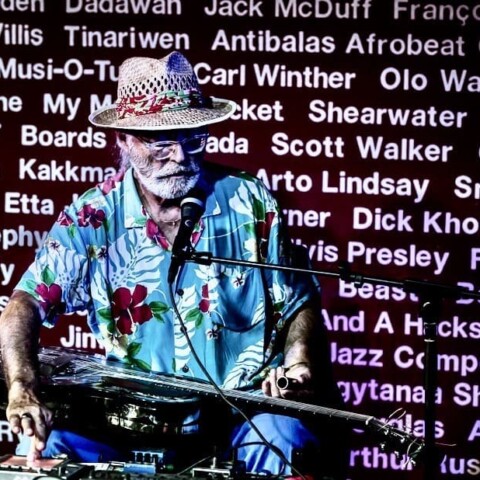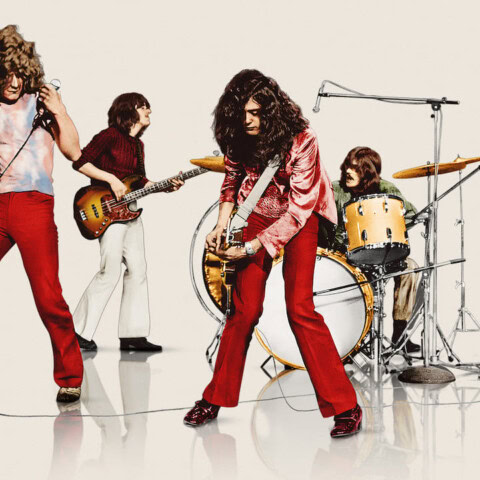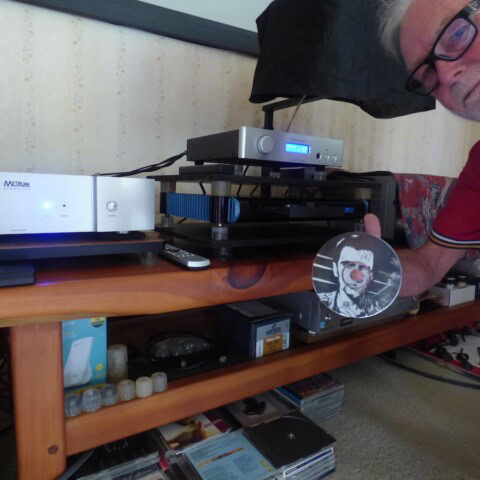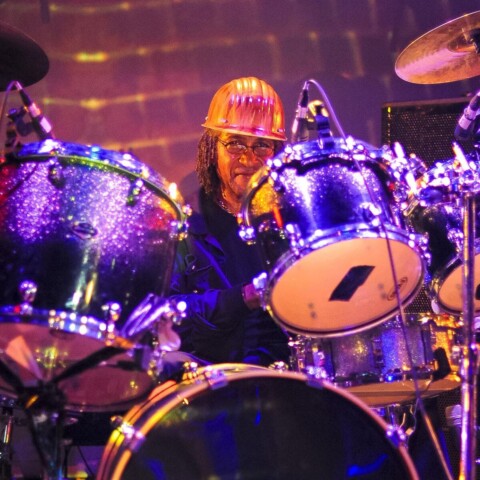Way back in 1984 GARY STEEL had a natter with The Shadows during their New Zealand tour and extracted their exasperation.

The Shadows are funny, their music is a bewildered travesty. Their fans number sad millions, and the shadows of their former selves play it for the money, these days.
These days means pandering to a predictable market, lost souls (fans) wanting more of what they got back then.
Support Witchdoctor’s ongoing mission to bring a wealth of new and historic music interviews, features and reviews to you this month (and all year round) as well as coverage of quality brand new, contemporary NZ and international music. Witchdoctor, entertainment for grownups. Your one-off (or monthly) $5 or $10 donation will support Witchdoctor.co.nz. and help us keep producing quality content. It’s really easy to donate, just click the ‘Become a supporter’ button below.
What they got back then was instrumental pop/rock music, made distinctive only by dint of Holly shadow Hank Marvin’s melody-carrying guitar work; a technique that within The Shadows only ever constituted an exaggerated gimmick, but which was hugely influential to rock guitarists.
What the fans want and get now is geriatric rock and roll, the old hits, and other people’s more recent big hits given a Shadows treatment. It is this latter scheme which has suited their recent recording revival, and it has been immensely successful for them.

They sit facing me in a semi-circle: Hank beaming and gabbling away happily, drummer Brian Bennett staring in a fashion which could be described as barely concealed animosity, and rhythm guitarist Bruce Welch, amiable but businesslike in his fielding of the more serious questions.
I ask the Shads why they don’t record their own stuff anymore.
Hank: “We made an album called String Of Hits in 1978 and it was The Shadows playing other people’s tunes… ‘Classical Gas’, ‘Don’t Cry For Me Argentina’… that album did 700,000. Because it had been so successful we kept going. It was like a format if you like. We’re now tired of the format I may add. The record company really wanted us to follow that. They saw a place in the market for us doing our versions of big hit songs, and it did work very well. But I think we’re probably due for a change now. The time has perhaps come when we’ve got to seriously look at this situation and ask ourselves if we want to do that again this year, or go right out on a limb and do some original material, which we’d like to do.”
Bruce: “We’ll work with the record company of course. They have to sell our records, so you have to work in with them. But I think we’ll mention to them when we get back, that I think we’ve run that formula dry… unless they say, ‘If you do these 10 tunes, you’ll sell a million albums’. In that case we’d be foolish not to do it.”

Hank: Obviously we’re not like a new progressive band. We were when we started… we’ve changed. So you have to look at it sensibly, and work it in with the business side of the record company.”
For a cabaret band playing mostly wallpaper music The Shads are remarkably successful. Of course, they could be accused of trading on the name and former glories. Still, their New Zealand tour was a substantial success – their two nights at the Michael Fowler Centre alone, for example, represented full houses at $17 a ticket.
I stooped to cliché. I asked Hank about his guitar style.
Hank: “It’s called No Technique. It’s hard to define a style. I can look at the mechanics of it and say that basically the sound is produced by a combination of pieces of equipment, a Vox AC30 amplifier which has a certain sound when mated to a Fender Stratocaster guitar. I also use a tremolo arm, and an echo box.”
https://www.youtube.com/watch?v=fpTqLVnEu5s
He describes his style as “a natural inability. When I started off I wanted to play like James Burton and Cliff Gallop who was Gene Vincent’s guitarist and Scotty Moore and Buddy Holly. I have in a way failed to really successfully copy anyone. But out of that striving to become like them, my own style developed, really out of an inability to play like them. I’ve heard people play like those guys much better than I ever did. But maybe they haven’t got their own style. So I think my own style is basically accidental anyway.”
Why, I wonder aloud, are The Shads around after 22 years? They put the longevity down to good management in the early days. I give examples of modern successful groups splintering early in their careers, such as Haircut 100 and Kajagoogoo.

“Lack of direction, lack of good management, someone firm,” says Brian. “We had a mature manager, about 40,” says Hank. “Some bands have young managers. The managers are stars in themselves. They’re as bad as the groups. We had a guy who had his feet on the ground, no false illusions. If we got ridiculous he’d just put you right down. We realized we were Wallies.”
Bruce: “The Shadows are running about six months of the year.” This is the other reason for the Shads’ continuation. “If it was 12 months a year this far down the line we’d be in straitjackets,” he says. “We normally travel in straitjackets,” says Hank.
The group admit that The Shadows is their bread and butter. Their artistic urges are satisfied by what they do during the other six months. Hank won’t offer anything on his time spent as a non-Shadow, but Bruce and Brian are proud to talk about their other work.
Brian: “I’ve done lots of television series, shows like The Sweeney, incidental music for cops and robbers things.” But his passion at the moment lies in scoring movie soundtracks. He has just finished writing, playing and recording the soundtrack for a Canadian feature called Terminal Choice, an atonal score which he hopes will give him the opportunity to do more in this line.
Bruce is a famous record producer outside The Shads. “I’ve just done a single for a guy called Gerrard Kenney who is an American artist. I have produced Cliff Richard, Olivia Newton-John and a girl called Charlie Dore (‘Pilot Of The Airwaves’) in the past. Producing is creating; finding a song, putting the correct instrumentation together, and getting the right performance from the artist; then mixing it all down, releasing the record and hoping it’s a hit. Then getting disappointed when it isn’t.”
Artists Bruce has turned down include: Eddie And The Hot Rods, Mari Wilson and Bow Wow Wow. Hank: “I thought you might have done Bow Wow Wow because that girl’s not a great singer but she’s got a great sound to her voice.”
Bruce: “Have you ever spoken to Malcolm McLaren? (Infamous ex-Sex Pistols entrepreneur and ethnic exploitationist). ‘Hey Bruce, this is Malcolm McLaren, and I’d like you to do Bow Wow Wow TOMORROW.’ One of those. And I go through the usual, ‘If you send me the records, send me the tapes, let me have a listen to what they’ve done…’ “Haven’t got time for that, I want you to do it TOMORROW!’”
+ Originally published in January 1984 in The Times, this is one of my more embarrassing pieces. If I had the opportunity to interview them again, I would certainly show them/their music more respect than I did as a callow 25-year-old. I felt jaundiced about them after attending their Wellington concert which just seemed so fuddy-duddy and lacked the freshness of their early 1960s hits.














